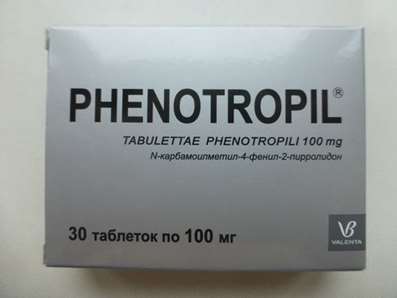Ethical issues of genetic testing
04 Nov 2016
Dr. Doping speaks about physician-patient relationship, the principles of bioethics and the privacy of genetic information.
Genetic testing - is to get through a variety of methods of genetic information about a person, if you define a reference to the fact that then leads to ethical problems. Obtaining genetic information about a person by any means possible. This may be a DNA analysis, cytogenetic analysis, it may be some specific biochemical tests, sometimes it may even be not-laboratory tests. For instance, some hereditary diseases can be diagnosed by X-ray analysis, such as skeletal disease. Then the X-ray may also be a kind of genetic test, because it revealed the genetic status of the patient, and often his family, because the same mutation can be someone of his relatives.
Ethical issues of genetic testing is widely discussed around the world, and this is due to a number of points. Firstly, the fact that so far remain in the memory of the most severe measures, which were used by eugenicists sterilization objectionable in some respect people, and discrimination against these people. Eugenic laws act not only in Nazi Germany, where these laws have been condemned by the Nuremberg Tribunal - eugenic laws and act in the United States and in many European countries and have been canceled rather late. In particular, in the Scandinavian countries, such laws were abolished in almost 80 years of XX century, because it did not achieve the desired result - failed to improve humanity.
When we start to do genetic testing, it is tempting, that perhaps something will be able in some way to improve, including restricting someone's right to have children, the right to a normal life. This raises a number of problems. The genetic test identifies genetic information. What could be, if the genetic information is made available to someone is not the one to whom it is intended? Can damage to the person who was tested, if the information on it has become known, for example, a future spouse? Yes, it can, it may damage the future of marriage. Such information about the child, if it became known in school, may lead to discrimination and stigmatization. People with a certain genetic status may be denied work, if, for example, revealed a predisposition to an occupational disease, the employer in fact easier to hire more resistant to the disease of employees than to improve the professional environment conditions.
In fact, in medical genetics is very peculiar are the relations between doctor and patient. Moreover, the doctor communicates not only with the patient and his family - a patient, in fact, is the whole family, but also the genetic information in this family is distributed, because the blood relatives of the patient can have the same mutation, and may require medical genetic aid on a par with them. And there is a certain doctor's duty to provide this information to relatives, or rather not even to inform and encourage the patient to provide information to their relatives, so that they themselves were tested.
Ethical issues in medical genetics is almost the same as in general medicine, with some features, and therefore realized they shared bioethical principles: fairness, respect for the autonomy of the individual, not harming, it is due - and bioethics rules, such as the protection of confidentiality, informed consent for all procedures, truthfulness. And most importantly, that the human genetic testing, which it passes, should understand why he does it, and fully-informed person has to make a decision. And then there is another problem. The fact is that quite often, especially in our country, patients become accustomed to the fact that the doctor has a paternalistic approach. A patient comes to a doctor for a prescription, how to act. And unlike just from general medicine physician-geneticist does not give the recipe, and it should tell you all about the disease for which testing is done, the benefits and risks of genetic testing, and have the patient or family should decide how to act. This is a very difficult decision, for that people should not only be informed - they need to understand this information.
Here arises another problem - the formation of society in genetics.
Because very often people use some peculiar sources, often there are any myths. And when a person takes a serious decision: to pass or not pass the test, have a child, if you have a higher risk of birth of the patient, or to refuse childbearing; if it is a prenatal test to pass or not pass prenatal testing; if the fetus revealed the disease, what to do with the pregnancy - to communicate to end or terminate a pregnancy. That is, the questions relating to the life and death of the fetus, is very serious questions.
Genetic testing is most definitely gives a lot of useful in the monogenic diseases, which are caused by mutations in specific genes, and where we know about the types of inheritance of this mutation. But even there, very often, when we identify some mutation, for example, prenatally, it is very difficult to predict how long it will be difficult to proceed disease, because even in the same family have the support of the same mutation disease can occur very differently. Sometimes it is impossible to predict the age of the disease, ie, unambiguous answers the physician-geneticist, as a rule, does not, we work frequently with probabilities.
With regard to the risks of genetic testing, one of the main problems - these are the risks of discrimination, it is a problem of interpretation of information, again associated with the clinical polymorphism of hereditary diseases and with one more thing. The fact that in recent practice in genetic testing began coming of new technologies - genome-wide analysis full-exomic analysis when detected in this study, many options at once some mutation variants in the genome. And the people who carry out the analysis of the test results, should assess whether relevant to the pathology of these options, or a manifestation of the norm. Unfortunately, the amount of knowledge, which is now accumulated, often does not allow to give a definite answer about many of these events, and interpretation of results is very complicated.
Generally believed that fully informed person understands what he can do, is to make that decision about genetic testing. But when he makes this decision - to be tested, or give it up - it should again be understood, which he refuses.
Now the problem of confidentiality of information. It is believed that genetic information is strictly confidential and is subject to all legal ways to protect patient confidentiality. However, as I said, for information may be entitled to sick relatives. In order to make its own decision about whether to have or not to have children, to go or not to get tested - it can be very important. Especially now that genetic testing is used not only for making reproductive decisions, but sometimes for making treatment decisions, on some tests.
This was applied now oncogenetics because became more aware of the hereditary forms of cancer, such as breast cancer, and the screening and detection of mutant alleles can lead to a solution, for example, preventive surgery or preventive solution. (To prevent cancer you need take Peptides (Cytomax) Vladonix). And there are times when families refuse to tell their loved ones that they too need to be tested. And this is an important dilemma: where is the border, when the physician must protect the confidentiality to protect his patient, and at the same time must comply with the rules do no harm to his family?
Sometimes ethical issues in genetic testing does not have a unique solution. The literature is such a case: there is a disease with a late age of onset, called Huntington's chorea, the disease has no cure, is accompanied by severe mental and neurological manifestations, starts late - on the third or fourth decade of life, it can be tested prenatally. Imagine a situation when a woman comes, the wife of a young man whose family inherited Huntington's chorea, and asks the doctor-geneticist conduct prenatal test her fetus, to see if he has inherited mutation. But while her husband does not want to be tested, he does not want to know their status. The disease can not be cured, and therefore he wants to remain with the hope that all of a sudden he was lucky he did not inherit the mutation. But if testing his child at this stage is passed, thereby wife learns not only the status of their child, the fetus, but also her husband. The woman said: "I've not tell him, if he does not want to." But such information is changing family relationships, and sooner or later will jeopardize their marriage.
Whose side should be a doctor in law and in different moral concepts?
This case is discussed in the literature quite a lot, and one solution does not find. Unfortunately, such problems are often doctor-geneticist encounters on advice when he needs to protect his patient, at the same time that the decision was made for the benefit of the family.
In fact, the ethical issues of genetics, as well as other ethical issues in other areas, are usually discussed in society, and when they come to some consensus, then there may be laws, professional guidance, how to act. Unfortunately, the ethical issues are discussed very narrow circle of specialists and very few discussed other members of society in our country, and in fact there are more questions than answers. And each time the emergence of new technology, as I have said, for example, genome-wide analysis of the technology or the technology of even pre-natal diagnosis, and in the system of assisted reproductive technologies for the treatment of mitochondrial diseases, receive three parents of the fetus - it is a very widely discussed abroad before allowing such technology in health care practice, and discussed not only by doctors, not only professionals, but also to those to whom it is intended, and representatives of religious denominations, and various public organizations. We, unfortunately, there are questions. And ethical issues will arise again and again with the advent of any new technology.

 Cart
Cart





